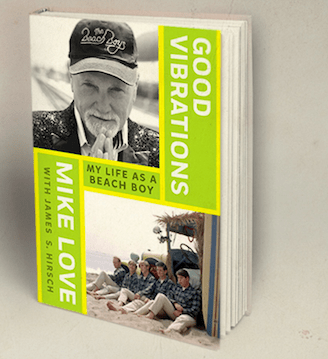What emerges from Michael’s narrative regarding his immediate and earlier ancestors is a solid work ethic and loving parenting with the exception of Buddy Wilson. The writer who helped Michael write his story, James Hirsch, organized Michael’s narrative in a chronological format. Mr. Hirsch, asked me to do an interview for the book which I decided to decline. Events that I was personally involved with are well documented in my Reuminations blog. Mr. Hirsch has put together a book that is commendable, quite readable, and that covers many of the phases of Michael’s life, before and during his career with the Beach Boys. I have found the narrative to be easy to pick up and difficult to put down. The story that Michael has told and Mr. Hirsch has assembled was easy to read and somewhat illuminating about certain phases of the Beach Boys’ careers and family relationships. For example, the section on the period when Charles Manson entered and plagued the Beach Boys’ lives is a welcome and fresh perspective, and somewhat clarifies an important dimension of the Beach Boys’ story that long term fans of the group knew, but was unknown to the public at large.
Michael’s relationship with Brian Wilson, his cousin, is woven throughout the book. Some interviews that I have conducted with acquaintances of the group credit Michael with almost teaching Brian how to socially interact with people his age in the late Fifties and early Sixties. It would not be wrong to say that Michael was a strong supporter throughout Brian’s early years composing and producing Beach Boy singles and albums. My personal opinion is that Michael and Carl Wilson’s strong support of Brian allowed him the chance to build a self-concept as a top flight composer, producer, and performer. Though Brian disliked the constant touring with the Beach Boys, and would have rathered to be home writing and producing music, his short tenure as a performing Beach Boy helped him learn the strengths of each group member so as to shine a favorable light on the Beach Boys in concert performance.
Michael, as a rule, does not shy away from revealing his life triumphs and lessons from readers. He begins his own narrative in the Beach Boys’ story by illustrating a tendency to being impulsive and somewhat juvenile in his life decisions well into his Thirties.
There is a theme of reaping negative consequences from his repetitive impulsive decisions that he made quickly without necessarily seeking out advice from friends and family. The development of his orientation to Eastern Thought and growing self-regulation of his own habit of “ready-fire-aim” mode of decision-making shows strong growth that might have been absent without his meditation and Eastern Philosophical orientation.
Of course, the story of The Beach Boys is a narrative of “what ifs.” What if Brian had released Smile as a solo album? What if the group had taken up several of the opportunities they passed up due to either lack of a consensus about what to do, or an impulsive manner of spending money from record companies and touring revenue as soon as it came in. The results of favorably taking on some of these opportunities are staggering. Bob Moog offered them ownership of his corporation for what was a reasonable price and the Beach Boys declined the offer. At different times, the early version of Three Dog Night known as Redwood, and the Exceptions, who became part of Chicago were given away due to group aversion to making Brother Records a viable entertainment corporation. What if the group had encouraged songwriting by all members instead of waiting for the next Brian Wilson composition? What if Brian had been encouraged to produce outside of the Beach Boys, either within the Brother Records structure, or perhaps outside of it? One of my close friends calls this line of thought the “woulda, coulda, shouldas.” It is a process that is ultimately self-defeating, but worth examining.
Michael looked many years for a soulmate. Sometimes, impulsivity led to relationship crashes. Other times, the true lifelong marriage of Michael to the Beach Boys interfered. Ultimately, Michael found his soulmate, just as did Brian. That his life is now more rewarding and stable could be explained many different ways. Suffice to say that Jacquelyne Love has been a strong and unconditionally supportive part of his life.
Every person, in my reckoning, can live fully and satisfyingly in life by using their talents and finding support for their deficiencies. Being a fulfilled son, or a father, or a co-worker, or a grandfather may happen or can be another one of those lost chances that cannot be regained. If age brings perspective, Michael Love seems to have wrestled some of his shadows and found a life about which he feels contented and proud. He is proud of his career, having received the legal credit for lyrics he wrote so many years ago. That Brian did not confront Murry Wilson about those credits was a painful feeling that did not resolve itself through Brian. Brian’s aversion to confronting his father is a possible explanation for these omissions. My hope is that these two talented men can set aside music and just be cousins like it was so many years ago.
Text copyright by Peter Reum-All rights reserved
